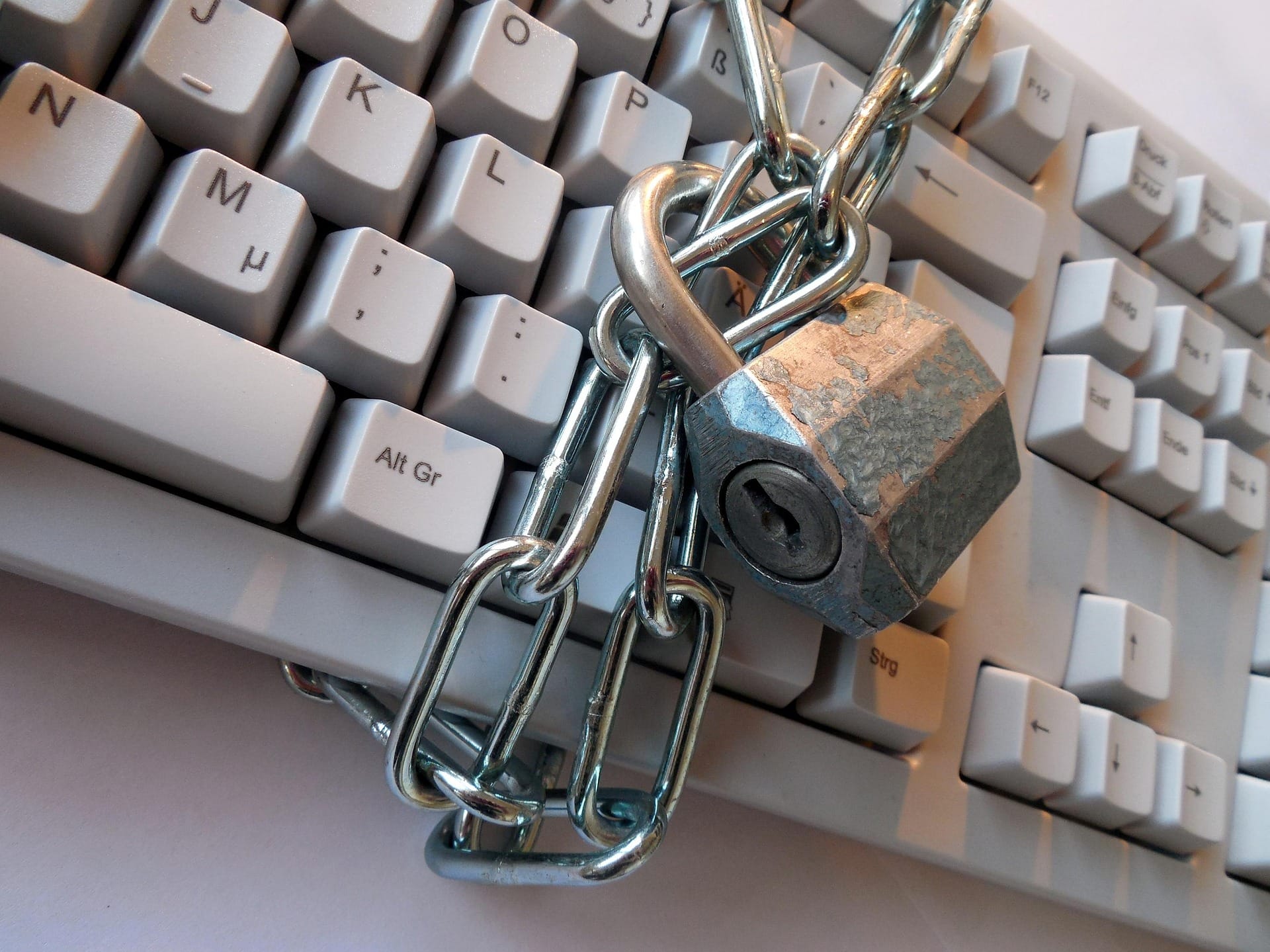Episode Transcript
[00:00:00] Speaker A: Foreign welcome everyone to a special episode on Internet privacy.
We've combined part of our March 24 episode with new material to create this digital survival guide for the age of surveillance. Previously, we had started a discussion about privacy and the growing authoritarian atmosphere here in America.
Unfortunately, we ran out of time and placed planned a follow up episode for a later date.
Then we realized that combining the follow up with the initial discussion would create one single comprehensive special.
So what was intended to be a two part series is now one big mega episode.
Welcome to a special double dose of critical defiance where we're not just asking questions, we're demanding answers.
Because let's face it, in a world where your every click, search and late night meme scroll is tracked, logged and potentially weaponized, ignorance isn't bliss, it's risk.
We're diving deep into the murky waters of online privacy and security. Today we're talking secure communications, VPNs, encrypted browsing, privacy focused software, and everything in between. We're going to arm you with the tools to take back control of your digital footprint. Because in a world where information is power, privacy is the ultimate act of defiance.
So whether you're a seasoned Internet warrior or a newbie just dipping your toes into the world of online privacy, this episode's for you. We're going to break down the complex world of Internet security into more easily digestible pieces. Because let's be real. In a world where your search history is more valuable than gold and your online activity is tracked more clearly closely than a celebrity's every move, knowledge is your best defense.
If you've already heard the March 24 episode, episode eight, you'll have heard the first half of today's special during the discussion segment. If that's the case, you may wish to jump straight to the second part of this one on your podcast app so you can pick up where we left off if you haven't, or you'd just like a refresher. Buckle up. We're about to talk about how to own your own privacy online.
So let's go.
All right, guys, today Turbo's flipping the script and putting me in the hot seat.
We're tackling the wild world of digital privacy and security, a topic which I know a little bit about because I've been in it for most of my life.
We're going to talk about the things that show up in our lives.
So for instance, think of that creepy feeling when your phone totally knows that you need new socks.
But on a scale that could influence elections, we'll be breaking down how your data is being used, who's watching, and what you can do to reclaim some semblance of control.
So grab your tinfoil hats or just your regular headphones and let's get into it. Turbo, all you.
[00:02:55] Speaker B: All right, so I want to start with the initial creepy skeevy. Definitely big invasions of privacy. Things like data harvesting, data mining, and data aggregation and what the differences are.
[00:03:08] Speaker A: All right, so data harvesting is something that happens to all of us all the time. You browse the Internet, you browse social media, you use apps on your phone, and you generate data. The data is things like what you've looked at, how long you've looked at it.
Did you share it with anyone? Did you click a link and go somewhere or make a purchase? This is all data that gets harvested, usually with your permission.
And that's something that most people don't catch because none of us really read the terms of service or the end user license agreement most of the time. No.
No, most of us don't. But when you look at them, what you find is that those types of actions and other basic data about your use of pretty much anything from a website to a search engine to an app on your phone can and will be used and repurposed. So that's data harvesting. They're basically taking the data that you're generating using their product. Okay, let's take Google as an example.
Google harvests data from your searches.
You go to Google, you search, you do it all the time. You do it ten times a day. Some days you do it at work, you do it at home, you do it on your phone, you do it on your computer, you do it on your tablet. It's a part of your life.
They harvest that data, they keep a record of your searches. They use that to profile you. They use it to determine what types of ads to show you. And in some cases, depending on who you're dealing with, they sell that data to other parties. And that's really common. So that's data harvesting. Does that make sense? Turbo.
[00:04:39] Speaker B: When I was in college, we had a marketing class that touched on something like this. The creepy predictive system that I believe Target used was telling women they were pregnant before they knew based on the things they were looking at, buying. Like, they started suggesting maternity things before these women knew they were pregnant. And this was like in the early 2000s, these studies were coming from.
[00:05:00] Speaker A: So you had also asked about data mining. Data mining is when you actively go out to get the data. Data mining can also called in most cases, snooping.
Data mining is done in a variety of different ways. One of the most common ones is to use bots or automated systems that crawl around the Internet, look for selective data, and report it to home.
So data mining is a way of going out and seeking data, where data harvesting is grabbing the data that flows by. Does that make sense as a distinction?
[00:05:35] Speaker B: Harvesting is more eavesdropping, where a minor would be hiring a private detective.
[00:05:40] Speaker A: Yes, yes. And then we talked about data aggregation, right? You had asked about aggregation, and aggregation is basically the fancy term for taking all of that data and putting it together. So there are firms and services that do this. They take the data that's been collected through harvesting or mining. They take the data you've volunteered in places like your social media bio and public posts, and they put it all together to make a profile on you.
So that's data aggregation.
[00:06:12] Speaker B: And I guess that starts coming into terms like data brokers who buy and sell that data.
[00:06:17] Speaker A: Yep. Their whole job is to collect and aggregate data and then sell it to the highest bidder for a variety of reasons, primarily marketing. But it's not just advertising. That can also be political research.
So, yeah, there's profile data about all of this out there based on what we do, and it winds up in the hands of data brokers who buy and sell it all the time. If you Google your own name right now, you will probably get results from a number of data brokers that, for a fee, will tell anybody where you live, who you live with, how long you've been there, what your previous addresses are, any current or past phone numbers, and in some cases, email addresses, and very often for an additional fee, any public records that mention your name. And a lot of people don't even realize that this is going on. But seriously, if you want to see just how deep it runs, try Googling yourself. It can be a very interesting experience. Now, we talked about data brokers, and I just want to throw something in here. There's a creepier thing in the world.
A lot of folks don't realize that there's such a thing as private intelligence firms.
There are privately held intelligence interests throughout the world, a number of them in this country, whose job it is to do all of this harvest, mine, aggregate, and then ultimately analyze everything so that they can answer questions of agencies like the CIA or the FBI or the highest bidder.
[00:07:52] Speaker B: That's nefarious.
[00:07:54] Speaker A: It's creepy, right?
That is very creepy.
And we can talk about where they get it.
Where they get it primarily is your Social media folks, they can track your Internet activity through a whole variety of means.
They can use intercepts on your communications, actual wiretaps, if it's a government or bad actor. But really, the truth is, most of the data they gather about the average person is on social media.
See, the thing is, when you're on social media sites, you're creating this broad overview of you, your life, your interests, and who you're interacting with in public. And that's the thing you have to remember, guys, when you're online, you are in public. I don't care if you're sitting home. The Internet is a public place.
[00:08:52] Speaker B: So does that really work, like the photography laws? If you're in an open space, people don't need your permission to photograph you. So that's why they can get away with that.
[00:09:01] Speaker A: For the most part, people don't need your permission to read your content that you have made publicly available.
Courts typically view that as broadcasting your information as opposed to sharing it. I could see that, that most people put out so much information about themselves and don't realize it. They do it in tiny little chunks. A little bit here, a little bit there, post here, comment there, check in here.
[00:09:25] Speaker B: What are ways to prevent these people from getting my data or any steps or things I can do to help make them have a tougher time reading me?
[00:09:37] Speaker A: I think where I would start for most people, and I know it's gonna sound like silly, common stuff that you've heard and been beat over the head with a thousand times, but make sure your passwords are good. Make sure you've got really solid passwords, passwords that can't be guessed.
That means no personal information in them. That means no names, and that means no birthdays and no significant numbers. You want stuff that's as close to random as you can possibly get. You can make it memorable by using combinations of words that you normally wouldn't.
Or you can do what a lot of us do nowadays and get a password manager. And there are some really good ones out there. There are even a couple good free ones out.
What a password manager does is eliminate the most common problem that people have that causes them to make weak passwords.
It will save all of your passwords, it will store them in a secure fashion, and then when you need to enter them, it will do it for you.
The only thing that you have to do is remember one password to lock and unlock it.
So you sort of got this vault or key ring that automatically does it for you as long as you remember one good Password. Most of these pieces of software do a great job at generating really hard to break passwords for them to store.
So seriously, think about getting yourself a password manager. And I think along with the password manager, use two factor authentication whenever you can.
Anytime that you're dealing with banking data, personal or privileged information, health information, anything that, that you want to make hard for hackers to get their hands on, turn on two factor or what they sometimes call multi factor authentication. An example of this is most banks, you log in with your password, they send a text message to your phone with a six digit number and you key that in.
The reason that you're doing that, just so you understand it, is to make it vastly harder for someone to steal your credentials.
Now instead of just asking for your password, we're asking for something you physically have as well, your phone in this case.
And without getting access to that phone, somebody who's stolen your password can't get in. So that's why it's done and that's why we recommend it. I think that's a big one. Start there, good passwords, password manager, and use two factor wherever you can.
I think the next place to go probably communications, right, Turbo. Because that's a big part of everybody's lives.
[00:12:14] Speaker B: We mentioned it earlier. We are still dealing with modern day wiretaps, but now everything's digital so they don't need to be in the same room to do it.
[00:12:22] Speaker A: Yeah, that's still easier.
[00:12:24] Speaker B: Definitely a good place to start.
[00:12:25] Speaker A: All right, so if we start with that premise that getting a hold or intercepting somebody's communications is easier nowadays because of the distributed nature of everything, then what we need to look at is how do we make that harder?
Most people message on their phones constantly. It's a primary form of communications for a lot of us nowadays.
And most people are using either SMS messaging or MMS messaging, what we call text messaging.
Newer phones, iPhones use imessage and Android phones use something called rcs.
The older systems, SMS and mms, they're not encrypted. So everything in the network gets to see what your messages are. And they can guarantee there are copies stored on your carrier's server in a backup for a very long time.
Generally you can't delete those. By the way, guys, RCS and iMessage have the advantage of being encrypted when they're talking to people who are using the same product. So when you speak to someone who is also using imessage, your messaging is encrypted end to end from your End to their end, and vice versa.
When you use RCS and Android, same thing.
When you start talking Android to iPhone or iPhone to Android, chances are your communication will not be encrypted.
So you want a secure messaging platform. You want something that's end to end encrypted, something that both parties are using to make sure that anybody in the middle can't just read those messages or store them for later.
I tend to recommend Signal. It is one of my favorite messaging products. It combines simple messaging with calling. That includes group calling and group messaging. So it's a pretty straightforward app. It's just like Your iMessage, your RCS, your text messaging, but from end to end, it is completely encrypted so that anybody who intercepts it, scans it, sees it, or otherwise gets a copy of it has no idea what's inside.
You need that.
In a world where we don't know how authoritarian the government's going to get, you need that. And you need my other favorite thing, which is encrypted email.
Who do you use for email, Turbo?
[00:14:50] Speaker B: I use Proton. Most people have never heard of it. I definitely get some looks when the cashier asks you for your email address at the store.
[00:14:58] Speaker A: I use Proton as well. Proton is an encrypted email service. So Proton does for email what a good encrypted messaging app like Signal or Wire can do for your messages.
Proton is one of the email providers out there. We love them, we recommend them. They're not the only one out there, though. There's a few others. And if you do a Google search for encrypted email services or secure email services, you'll find, I think it's about 15 of them now that provide encrypted email. But you've got to keep in mind, encrypted email is only encrypted when both parties are using an encrypted email service.
So if your mom, without encryption sends you a message, you don't have any extra security really.
But if Turbo and I were to email each other, both being on Proton, it is thoroughly encrypted and we love that.
Email is essentially a postcard without encryption.
Where it's coming from, where it's going to, and what the message is is visible to parties in the middle.
With encryption, you stick it in an envelope and solve that problem.
All right, so what are some other things we can talk about in terms of practical steps? Turbo, Give me some ideas.
What do you want real?
[00:16:16] Speaker B: What outside of browser settings and app.
[00:16:20] Speaker A: Settings, can we do real world Real life irl.
[00:16:24] Speaker B: Yeah. And maybe something I can do or start changing in behaviors or mannerisms or something like that.
[00:16:28] Speaker A: Okay, so like actual real world IRL stuff, the first one I'm going to put out there is get notebooks.
I love notes. I love taking notes on my computer. I use a computer with a touchscreen and a pen. I love using that. And on that I use an encrypted notes program. But when I want something to be really secure, I put it on paper in a notebook in my corner of the underground bunker.
And the only way you're going to get to that is if you come in and steal it.
So I don't have to worry about my notebooks being hacked. Can't hack a notebook, can't hack paper.
So the most secure stuff that I need, it gets written in a notebook. Not on my computers, not on my tablet, not on my phone. In fact, I have a little one that I carry with me for really important stuff, just in case it's got its own little slot for a pen. So, yeah, carry a notebook. Foreign folks, welcome back. In this part, we're arming you with the knowledge to fight back against the creeping surveillance state when you surf, browse and doom, scroll Even more of your online life is probably less private than you think. So I'm going to let Turbo pick my brain a little bit more and we'll see where it goes.
[00:17:55] Speaker B: So earlier we talked a little about secure communications and you'd said there was more that you wanted to go into.
[00:18:00] Speaker A: We had talked about secure messaging and secure email, both of which are very important things. But let's kick things off for part two with the basics. Browsing and VPNs.
Now, when you surf the web, it's like walking down a crowded street. You're basically in a public place and that's easy to forget.
Your isp, those lovely folks who bring you your Internet connection, and a whole host of other shadowy figures, from marketing to private intelligence firms watching your every move.
That's where a VPN comes in. Think of it as a digital invisibility cloak.
A virtual private network establishes a secure and encrypted connection between your device and the Internet, functioning as a protective tunnel for your data. This tunnel serves two critical purposes. First, it masks your IP address.
Your IP address is like your digital home address, folks. And revealing your location and potentially allowing others to track your online activities goes with it.
A VPN conceals your actual IP address by assigning you a temporary one from a remote server, making it a lot harder for anyone to trace your online activity.
That added layer of anonymity can be particularly crucial when using public WI fi networks, which are often unsecured and susceptible to eavesdropping. Think hotels, coffee shops, libraries, stuff like that. Second, and just as important, a VPN encrypts your data.
Encryption scrambles your data with a digital key, rendering it pretty much unreadable to anyone along the way or who might intercept it. This process transforms your sensitive stuff, such as login credentials and bank details, your browsing history, you name it, into an indecipherable code that can only be accessed with the correct decryption key.
So this safeguards your data from hackers, cybercriminals, and even your Internet service provider, because they tend to sell what you do online to marketing companies.
The whole thing is about ensuring that your online activity remains private and confidential.
By masking your IP address and encrypting your data, a VPN gives you a robust defense against online surveillance. It guards against data breaches. It helps you when it comes to identity theft. It is the envelope on your mail. It is the secure wrapper around your communications. And it empowers you to browse the Internet with greater confidence, knowing that your personal information is shielded from prying eyes.
For more info on that, you guys can actually check out the Electronic Frontier Foundation. They have a guide to VPNs. We'll put a link to that in the show's notes. They've got a lot of great resources we're going to share with you.
[00:20:35] Speaker B: Okay, so here's one. When most of us connect, one of the things that we do most often is search for stuff. Whether it's news, information, entertainment, the things that you type into Google every day. How can we protect ourselves if we're.
[00:20:47] Speaker A: Going to talk about search? Yeah, it's a thing we all use, but the trail that you leave behind is kind of massive. It's really creepy, actually.
Every search query, every click, it all gets logged somewhere. Think of it like you're leaving digital footprints in the sand and those footprints lead right back to you. Be mindful of the terms you use when you're searching. That should be obvious, but be careful. Avoid clicking on any of those sketchy looking links. You know, the ones that are ads that come from websites you've never heard of, or the ones that promise a free iPad if you just enter your Social Security number. Spoiler, it's not free.
The other thing I think that's really important is consider switching to a privacy focused search engine. Something like DuckDuckGo or StartPage. They don't track your searches, which is a breath of fresh air in this data hungry world. Right? Remember that your search history is a gold mine for advertisers and data brokers. It sticks around for a long time and in many cases it's merged with things like your location data. So using something like Startpage or DuckDuckGo is a great place to start. When it comes to search VPNs. Give us that secure wrapper. Using the right search mechanism gets rid of search records. What do you want to talk about next?
[00:21:57] Speaker B: I know a lot of people who don't even bother to look at anything unless it's through social media.
A lot of people don't even bother looking things up unless they need a word to find or they need to do shopping because they saw something in a video.
[00:22:09] Speaker A: I think you're absolutely right. I think there's a good chunk of Internet users who use the Internet primarily, if not solely for social media. So let's talk about social media. This is the place where we're sharing everything from our breakfast to our deepest thoughts. It's also kind of a privacy minefield, guys.
So let's talk about how to avoid stepping on some of those landmines first. In every social media service that you have, dive into the privacy settings. Look at each setting. Make sure that it is set up in a way that you are comfortable with. Don't just go with the default. You'd be surprised at how much you're sharing by default. Review everything and tighten it up. A lot of people don't really do it.
Be really mindful of what you post. That picture of your passport probably not the best idea. And for the love of all that is holy, avoid over sharing personal details like your high school graduation date and your mother's maiden name. The things that are security question gold.
Also avoid posting vacation dates and situations where you'll be away from home or the office for extended periods publicly.
You don't need that out there. You don't need to be targeted as the perfect place to go. Rob, Finally, I think I would say be wary of friend requests from strangers. That's a big one. Don't click on any of those oh my God, you won a million dollars links. Obviously those are scams, but you're going to get a certain number of complete strangers, many of them highly attractive, who are going to try and be your friend. And most of the time they're just a scam waiting to happen.
So keep that in mind. Be really Careful with who you talk to, what you post and what your settings are. And remember, anything you post can be seen by a huge audience. Right, and that includes future employers, stalkers, government agencies, anyone else with an Internet connection really. Because like we said before, it's a public place.
So be mindful, be careful and be selective with those privacy controls.
[00:24:10] Speaker B: So we've really mainly been talking about computers, but what about everyday carry devices? You know, my phone, my watch, heck, even my headphones have a find my whatever feature. So is there any advice on things like that?
[00:24:25] Speaker A: Let's start from your phone because your phone is basically a pocket sized spy that you take everywhere with you.
So let's talk about how to lock it down. First, the obvious.
Most people are using either fingerprint or face id.
Both of these are a bad idea. If you're ever going to be in a situation where access to your phone might be forced, and that happens during thefts and muggings, by the way, people will actually demand that you unlock your phone.
If you go with a password or a pin, you can forget it.
So you get the idea. A PIN or a password you have to be compelled to give up thumb on a screen reader. That's something a cop can do to you with the right court order.
So use a pin, use a password, don't use biometrics if you can. If you do use them and you have an Android phone, you've actually got this cool thing called lockdown mode. And in lockdown mode you have to enter your PIN or password. Biometrics won't work anymore and it disables the port on the bottom of the phone so it makes it harder for anybody to get to the data that's stored on it. That's kind of cool.
Now you had asked about Find my and Find My devices and you know the Find My networks that everybody's got. Apple's got one, Google's got Life 360 has one that used to be called tile.
This stuff is crucial right now. There's an upside. If your phone gets stolen, you can track it, you can lock it, you can even wipe it remotely. It's like having a digital leash on your phone and your data, which is great, but it also has a downside.
It creates a very detailed log of everywhere you've been with your devices.
So decide if you want that kind of real time tracking in your life. If you don't ever see yourself using the Find My features, turn them off because they're killing your battery and they're storing your location Pretty damn frequently. They both have values, they both have trade offs. But make your own decision.
[00:26:20] Speaker B: All right, how does that bigger from the top down umbrella nefariousness come into play with these?
[00:26:27] Speaker A: I think I know where you're going with this. So, like, you think location tracking is just your phone pinging a satellite, right?
No.
Welcome to the 21st century, folks, where your every move is a data point.
Yes, GGPS is the OG of location tracking. And surprise, surprise, it's jammed into pretty much everything we have these days. Phones, watches, fitness trackers that know when you're hitting the donut shop instead of the gym. They're all broadcasting or recording your coordinates. It's kind of creepy, but here's where it gets really creepy. Bluetooth.
Add that to the mix and suddenly every device connected to those GPS enabled gadgets is also a potential tracker.
Your earbuds, your smartwatch, even your car's infotainment system, they all start whispering location data. And that data can be picked up by anybody who's listening. It's like a digital breadcrumb trail. Someone's always hungry for those breadcrumbs. So watch it.
Some devices, they're real time stalkers, constantly updating your location. Your phone does that. That's how you can pin it down if you lose it. Others though, like earbuds or AirPods, are more like digital ghosts, right? They leave behind a last known location snapshot. So it's the difference between being followed by a live drone and finding a picture of yourself on a milk carton. But either way, somebody knows where you've been or where you are.
[00:27:52] Speaker B: So we've talked about the big obvious privacy concerns, but what about those very often skipped over settings, you know, the optional data and optional diagnostic data that always tells you that it's to make the product better. Is that just guys to play into.
[00:28:08] Speaker A: All of this data collection?
Sure, yeah. A lot of the data collection that goes on legally you have to opt into, and these are excuses to get you to opt into it. When they're asking for diagnostic data, generally it's at least partially legitimate. It's information they would use to resolve problems or issues in the event of a crash. And a lot of apps and devices will report their crashes back to home. So they can be improved. But the data that goes into those diagnostics can be very detailed and very personal. So me?
Nah, I leave it off.
Look, when an app asks for optional data or optional diagnostic information, translate that to we want to know everything about you, even the stuff you think is private, like they Sugarcoat it. They claim it's to improve services, but let's be real, it's a data grab. They want to track your habits, they want to track your location, they want to trap your app usage, everything. It's like they're building a digital profile of you piece by piece, and they're selling that to the highest bidder. And there are multiple entities doing it. Anybody who has written an app that's on your phone could be in play here. So think about it. Why does a news app need your location every five minutes? Do they think you're going to spontaneously combust if you don't get real time traffic updates while you're reading about the latest political scandal?
No.
They want to know where you are, they want to know where you've been, they want to know where you're going. That's valuable info for advertisers, data brokers, and anyone else who wants to know your every move.
So here's the deal again. Dive into settings, folks.
Turn off anything that sounds even remotely suspicious. Limit location access, restrict background data, and tell those apps to just back off.
You're not a walking, talking data point. You're a person. You deserve some damn privacy. So if it's optional, leave it off.
[00:29:55] Speaker B: So now that we are in the full swing of the 21st century, the very outdated Nigerian prince scam from the 90s has definitely gotten a facelift nowadays, right?
So there's some good catfish to keep looking out for in this sense.
[00:30:10] Speaker A: Like phishing scams and stuff. Oh, well, you know, nowadays it's all about cell phones. Email phishing still goes on. There's new tactics and approaches to it, but most people are smart enough to know. If you don't know who the email is from or you can't verify it, don't click the link. So what these scammers have done is switched over to cell phones, scam links, and phishing over sms. It's becoming increasingly prevalent nowadays. These are like the digital equivalent of some shady guy in a trench coat offering you a Rolex for 10 bucks. Be really cautious.
Never ever click on a link you got in a text from a number that you don't know.
And if you get a text asking for your bank details, your passwords or personal information, delete it. If the text is claiming to be from your bank or financial institution, it's probably not.
No legitimate bank will text you for your password. If you're not sure, pull out your card and call the company directly through the number that's on the back of Your card, you know that's real, you know it's good they gave it to you. These guys are getting smarter every day.
If it sounds too good to be true, it probably is. If it sounds utterly scary, it might be a scam. Because most scams today start with scare tactics.
Some of them are simple, like a common one lately has been for the scammer to touch you, posing as either the postal service or a delivery company like UPS and claim there's a minor issue with your delivery. You know you owe 46 cents or they can't deliver it, or there's a tariff that needs to be paid and that has to be handled before your package can be delivered. Don't respond.
That's not real. They don't do that.
But people are falling for it left and right. Those are some examples of phishing and that kind of stuff that gets really hairy.
[00:32:02] Speaker B: What about video games, PC gaming, console gaming?
[00:32:05] Speaker A: Is that an angle that anyone could do?
It's an angle that most people never explore or think about. But I'll tell you, it's one of the wildest privacy nightmares you can find.
So your console, whether it's an Xbox or a PlayStation, is collecting huge amounts of data about what you play, when you play it, how it can infer things like how interested or awake you were, and share that data as well, which is really interesting.
But in order to use most of these consoles nowadays, you have to have some kind of online server subscription.
So that's another piece of your social footprint, and it's one that people tend to forget about. So remember, you know, you've got a name in a bio and a way to reach you and a way to watch what you're doing, whether or not you're gaming. Typically on those platforms, you might want to lock that down.
The other piece, the part that I said was a nightmare, is what they do with your voice traffic. See, here's the thing.
So many games nowadays are co op or multiplayer, especially shooters, right? We love them.
You wind up in these voice chats using online services like PSN or Xbox Live that are monitored sometimes by real humans, but more often by AIs that are looking for misbehavior and judging you with their little machine brains and storing everything you've said for pretty much ever in case somebody reports you and they need to go back and look at it.
If you're in a game chat, just game chat. Don't talk about your life, don't talk about your friends, don't talk about how you're doing or your family use it for the game. If you're gonna be social in a game chat, use something like Discord or use a private chat mechanism. You can even use something like signal. We do. But don't rely on the safety or security of your in game chat no matter what you do. That would be dumb.
[00:34:04] Speaker B: I can't remember whether or not we touched base on voice assistants and things like that.
[00:34:09] Speaker A: Voice assistants are kind of leaky like a sieve, man. Really, they're, they're convenient and they're handy and they're fun. And there are scenarios where I think they're incredibly useful, like for the disabled or the elderly.
But for most of us, what they are is an on demand listening device sitting in our home that's keeping an ear open to everything we say in case we address them, because that's how they work. They listen to everything in case you say their wake word, whether it be Alexa or hey, Google or whatever.
So what comes with it is when you send them a command, when you say the name of one of these voice assistants, you'll issue a command and the next 20 or 30 seconds will get recorded and stored forever by the company that owns it for product improvement purposes.
Sometimes also the 15 seconds prior gets stored for product improvement purposes.
[00:35:01] Speaker B: What about all these computers and cars nowadays?
How vulnerable are those? Can anybody do that? Fast and the Furious, what was it, seven or eight? That one with Charlize Theron, they made it like World War Z zombies just piling on top of each other.
[00:35:16] Speaker A: Not quite yet.
Not quite yet, but we're getting there. As self driving becomes more and more of a thing and cars become more and more connected, you can't rol what we do have in analyst cars that have Bluetooth and now WI fi for ease of connection to your devices, things like your tablet and your phone and whatever else you may have on you, it opens up a whole new world because now we've got ways we can remotely and wirelessly connect to the computer in your car.
And that computer, if it's connected to your phone, has a lot of information and access to a lot of information.
Things like your contacts, your photos, notes, text messages, all sorts of stuff. So yeah, the car can be interesting and it can be an interesting vulnerability. If I was going to put one piece of advice out there for folks when it comes to infotainment systems in cars, if you get a rental, don't use the one that comes with it. The amount of data that you will leave behind boggles the mind. And sometimes that Includes your complete phone book.
Just so you know, that's my advice for car infotainment. The other one is if the car has an emergency alert system, like an SOS button, like OnStar from back in my day, it's got a mic, it's got a cellular connection that can be lit up remotely. So keep that in mind. There's a listening device in that car at all times. A lot of people don't realize that that is effectively what it is, but, yeah, you hit the SOS button, they light up the mic and the speaker and start talking to you. There's nothing that says you have to hit the SOS button for them to do that, though.
All right, so I think. I think we've had a good discussion this week, right, Turbo? I think we got the basics of online privacy.
[00:36:54] Speaker B: Yeah, I think we touched literally anything one could.
[00:36:59] Speaker A: Yeah, anything you could do in your first pass to get started on the path of building your own digital privacy and owning your own footprint. All right, I guess that's it for this Critical Defiance special episode. Don't be a stranger, guys. Hit that subscribe button on Spotify, Apple Music, YouTube, or wherever you get your podcast fix. There's a lot of links and resources in the notes for this particular special, so head over to critical defiance.com for that stuff and some bonus content while you're there. Sign up for our newsletter because your inbox deserves some quality content, too.
Give us a like on Facebook. Find us on Blue sky or Threads if you're into that sort of thing. And remember, new episodes come out on Mondays, so if you've enjoyed this one, you shouldn't have long to wait for more.
So until next time, this is Neil Zolson and Turbo signing off.
Stay paranoid, stay informed, and keep fighting the good fight.






